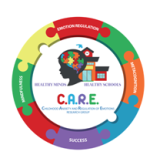
On this page: Children & Youth | Learning & Education | Psychology & Health | Publications & theses | Canada Research Chairs | Research support
Research is an integral part of the Department of Educational and Counselling Psychology.
Students considering participation in the activities of any Centre or research group: please contact the researchers responsible, or the research lab program director or advisor about eligibility, types of involvement, and registration requirements. Students may also wish to consult the Working page for information on Research Assistantships.
Research activities are presented below in broad categories for quick reference purposes - many research projects span more than one category.
Children & Youth
 S.T.A.R. Lab (Sladeczek Team for Applied Research)
S.T.A.R. Lab (Sladeczek Team for Applied Research)
Focus: Intervention studies all related to service providers, schools, families, and children who are at-risk or identified as having a developmental disability, behavioural/learning disability, or systemic factors that impinge on children’s and families ability to function (e.g., radicalization, violence)
 International Centre for Youth Gambling
International Centre for Youth Gambling
Focus: Youth gambling and high risk behaviours.
youthgambling.com
 |
S.T.A.R. Lab (Sladeczek Team for Applied Research)Focus: Intervention studies all related to service providers, schools, families, and children who are at-risk or identified as having a developmental disability, behavioural/learning disability, or systemic factors that impinge on children’s and families ability to function (e.g., radicalization, violence) |
International Centre for Youth GamblingFocus: Youth gambling and high risk behaviours. |
|
 |
DAIR (Development and Intrapersonal Resilience) Research TeamFocus: Non-suicidal self-injury among youth/young adults, enhancing mental health resilience in educational settings through the use of mindfulness, and aspects of the environment that may serve to support the adjustment of youth/young adults at-risk (e.g., online, technology, peer outreach)
|
McGill Youth Study Team (MYST)Focus: School success for all children & adolescents.myst.mcgill.ca |
|
Self-Injury Outreach & SupportFocus: Non-profit outreach initiative providing information and resources about self-injury to those who self-injure, those who have recovered, and those who want to help. |
 |
Talwar Child Development Research LaboratoryFocus: Children’s social-cognitive development. More informationResearch Focus: We are researchers interested in children’s social-cognitive development. Our research is informed by the disciplines of psychology, education and law to examine children’s behaviours that are pertinent to children’s adaptive development, child witness testimony and professionals who work with children. For instance, we conduct research on children’s adaptive development. We examine how they learn social rules and conventions, understand others feelings and beliefs, and how they develop social behaviours and manage social interactions. Our research mandate covers a wide range of issues and research questions: The children’s lie-telling and moral development as well as promoting children’s honesty and moral development in applied settings. Deception detection strategies in children and adults Children’s social interactions in school, between friends and cyberspace Children’s conceptions of life, death and spirituality as well as how parents, teachers, and health care workers talk to children about these concepts Child witness competency and abilities to testify Our research not only has implications for our theoretical understanding of children’s adaptive development but also aims to provide relevant information to real‑world problems faced by parents and professionals who work with children (e.g., teachers, social workers, legal professionals, police, and health professionals).
|
|
 |
Childhood Anxiety and Regulation of Emotions (C.A.R.E.) Research GroupDr. Tina C. Montreuil Focus: C.A.R.E.'s current research focuses on investigating the role of belief, attitudes and emotion regulation in anxiety disorders and how deficits at the level of these strategies and affect may interfere with self-regulated learning in a group context, as well as to contribute to the development of psychopathology. |
Learning & Education
 |
Achievement Motivation and Emotion (AME) Research GroupFocus: Psychosocial determinants of optimal development in academic achievement settings, with a focus on motivational strategies, discrete emotions, and interventions as predictors of health, motivation, and performance. More informationCommon Research Interests: Achievement motivation, motivational interventions, motivational strategies, perceptions of interest/value/control, academic emotions, post-secondary student development and retention, faculty motivation, health and motivation in older adults, student and instructor attrition Lab Members: Dr. Nathan Hall (director, McGill), Dr. Thomas Goetz (primary collaborator, University of Konstanz); Drs. Raymond Perry and Judith Chipperfield (collaborators, University of Manitoba), Dr. Jutta Heckhausen (collaborator, University of California, Irvine), Dr. Reinhard Pekrun (collaborator, University of Munich), Dr. Carsten Wrosch (collaborator, Concordia University), Dr. Robert Stupnisky (collaborator, University of North Dakota); Kyle Hubbard (RA, MA student, McGill), Jason Ringo (RA, McGill) Other Information: Opportunities exist for international research exchanges with collaborators as funded through grants to the director, collaborators and student awards (e.g. DAAD).
|
 |
Advanced Technologies for Learning in Authentic Settings (ATLAS)Focus: Design and evaluation of technology rich learning environments for classroom and real-world applications; computer-based learning and dynamic assessment in science and medicine; cognition, affect and learning; individual differences. More informationCommon Research Interests: Better understanding learning, problem solving and decision-making across different disciplines. Lab Members: Dr. Susanne Lajoie (Director), Dr. Jeffrey Wiseman, MD (Research Associate), Omar Sharif Ahmad (Postdoctoral Fellow), Ilian Cruz-Panesso, Yuan-Jin Hong, Lorraine Meilleur, Laura Naismith, Nicholas Gelinas-Phaneuf, Eric Poitras, Maedeh Kazemi, John Ranellucci, Christine Summerside, Kevin Waschke (Graduates Students) Other Information: Undergraduate volunteers are welcome to join.
|
Doc WorkFocus: Identity-trajectories of doctoral students, post-docs, and pre-tenure professors (personal and career intentions and experiences over time) More informationCommon Research Interests: Those interested in qualitative research related to identity development; we focus first on doctoral experience and then on career decisions and life plans post-graduation which may lead outside of academia Lab Members: Lynn McAlpine, Cheryl Amundsen (SFU, Shuhua Chen, Greg Hum (SFU)
|
 |
Higher Education Research Group
|
|
 |
Socio-Cultural & Online Learning Research Teamhttps://socioculturallearningresearchgroup.wordpress.com/ Focus: Design, Implementation and Assessment in online learning. Activity Systems Theory in learning environments. Use of second language in learning. |
Psychology & Health
 |
CORE (Coping and Resilience) Research TeamFocus: Stress and coping, with an emphasis on LGBT populations and people living with/affected by HIV. More informationSecondary research foci include bereavement, training and professional issues in counseling psychology, and gender issues. Common Research Interests: LGBT issues, HIV/AIDS, bereavement, professional/training issues, gender issues |
 |
Health Psychology Research Group |
McGill Psychotherapy Process Research Group (MPPRG)Dr. Martin Drapeau, Dr. Marilyn Fitzpatrick, Dr. Jack De Stefano Focus: Improving treatments and interventions in mental health. More informationResearch foci: Psychotherapy process and outcome: The MPPRG conducts studies on the patient/client variables, therapist variables and the interactive process of psychotherapy, and the effect of these on treatment outcome. Progress tracking and monitoring in psychotherapy: The MPPRG conducts research examining the advantages and disadvantages of using ongoing tracking methods in psychotherapy. Use of new technologies in delivering psychotherapeutic services: The MPPRG conducts research into the use of new technologies in psychotherapy, including cyberpsychology and virtual reality, and telepsychotherapy. Mental health services (psychotherapy) in primary care: The Group conducts research examining some of the key variables in effective psychotherapy service delivery. While many members of the MPPRG are interested in applied clinical research, many others focus on knowledge translation. As such, the MPPRG also aims at developing guidelines related to the practice of mental health assessment and psychotherapy. Lab Members: Martin Drapeau & Marilyn Fitzpatrick, Directors. Any given year, the MPPRG includes between 20 and 25 research assistants, including master level and doctoral level students. Other Information: mpprg.mcgill.ca; marilyn.fitzpatrick [at] mcgill.ca; martin.drapeau [at] mcgill.ca
|
Perceptual Neuroscience Laboratory for Autism & Development (PN Lab)pnlab.caMore informationFocus: The Perceptual Neuroscience Laboratory (PNLab) for Autism and Development is interested in assessing perceptual and cognitive processes during typical development, in the autism spectrum and related neurodevelopmental conditions. Research conducted in the lab aims at increasing the efficacy of existing cognitive and behavioral interventions in autism by considering perceptual strengths and challenges in this condition at different periods of development. Common research Interests: (1) the characterization of brain function underlying perceptual and cognitive processes in autism and fragile-x syndrome (FXS); (2) how altered sensory functioning differentially affects higher-level perception (i.e., social perception), cognition (i.e., visual attention), learning and behavior in autism; (3) defining developmental trajectories for visual and auditory abilities in both typically- and atypically-developing populations; and (4) the development of cognitive assessment tools based on perceptual performance. Lab Members: Catherine Archambeault, Vanessa Bao, Katherine Bonnycastle, Sabrina Censi, Victoria Doobay, Kevin Dugas, Jacalyn Guy, Kian Habib, Julie Hanck, Evelyne Marcil, Karine Morin, Audrey Perreault.
|
||
 |
Resilience, Pediatric Psychology, & Neurogenetic Connections Laboratory (The Connections Lab)Focus: Developing school success in the populations at highest risk for school failure. More informationAmong current projects are developing mentoring program for high risk high school students with the Montreal Alouettes of the CFL, developing and evaluating high school dropout interventions with the Lester B. Pearson School Board, researching the development of language skills in children with rare genetic disorders and autism, and developing international partnerships to improve the academic performance of children with borderline intelligence. All research is based on the meta-academic model, which involves the instruction of non-academic factors that lead to school success in high risk students. The identified factors are: social skills, language skills, executive functions, coping with mental health issues, and coping with medical issues. These five areas are a complement to academic instruction and are necessary to school success. Common Research Interests: Students interested in school psychology, implementing real world interventions with students at risk for school failure, neuropsychological assessment and interventions, international research, and the intersection of medical issues and school performance. |
 |
SPARC (Social Policy, Advocacy, Research, Community)Focus: Promote social inclusion among individuals with disabilities by emphasizing self-determination, community, and a shared responsibility for successful outcomes. More informationLab Members: SPARC is comprised of graduate students from diverse backgrounds and with an array of strengths and interests. Team members have included students from Human Development and Law programs, a fellow at the McGill Institute of Health and Social Policy, teachers, practitioners, and students with disabilities.
|
 |
Social Justice and Diversity Research LaboratoryFocus: We examine issues related to social justice, oppression, and trauma with special attention given to diversity such as immigration, gender-based violence, nationality, ethnicity, race, gender, religion, sexual orientation, language, social class, and bullying. |
Behaviour Autism and NeuroDevelopment Research GroupFocus: Cognitive, social, emotional, and brain development; music perception and cognition; autism spectrum disorders and fragile X syndrome. |
|
 |
Healthy Development Research LaboratoryFocus: Identify how factors such as mental health, stigma and neighborhood shape and are shaped by health and education service utilization. The laboratory takes a life-span approach to understand how individual vulnerabilities (e.g., conduct problems, sexual minority identity) shape health and school-based mental health service usage, and how, in turn, service usage shapes outcomes among vulnerable populations. |
 |
Cultural and Indigenous Research in Counselling Psychology (CIRC)Focus: Cultural research pertaining to counselling psychology and related mental health disciplines, with a particular focus on partnering with Indigenous communities within Canada. |
Publications & theses
- ECP faculty publications: Faculty publications are listed on the ECP Annual report page.
- Theses: The McGill eScholarship repository for contains a listing of full-text copies of ECP theses. Sort by date, creator, subject, and more.
- Journal: McGill Journal of Education / Revue des sciences de l'éducation de McGill. MJE is an academic journal promoting an international and multidisciplinary discussion of issues in the field of educational research, theory, and practice.
Canada Research Chairs
![]() View a listing of ECP's Canada Research Chairs. The federal Canada Research Chairs program stands at the centre of a national strategy to make Canada one of the world's top countries in research and development.
View a listing of ECP's Canada Research Chairs. The federal Canada Research Chairs program stands at the centre of a national strategy to make Canada one of the world's top countries in research and development.
Research support
For faculty: The Office for the Faculty of Education Research: Initiatives, Networking, and Grants (OFFERING) acts a first point of contact for research support to faculty members.





